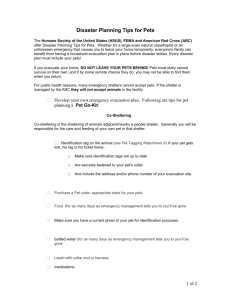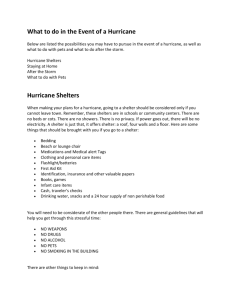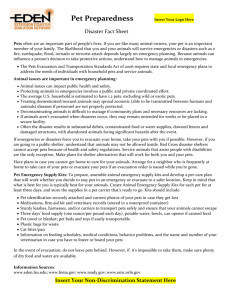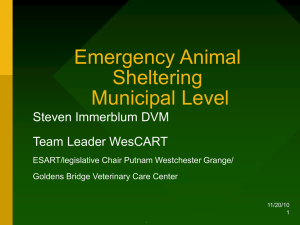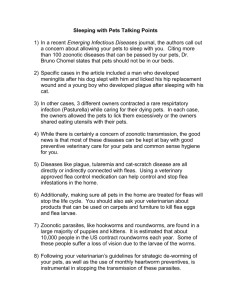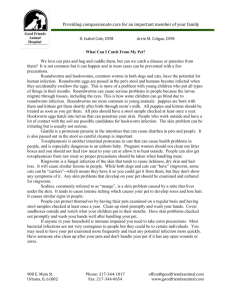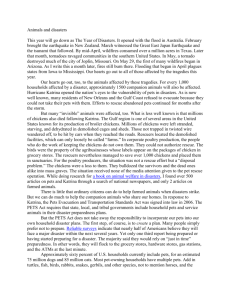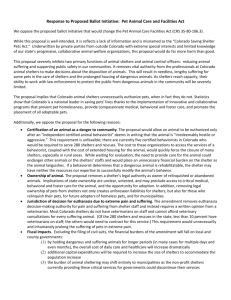Pet Preparedness - Highlands County
advertisement
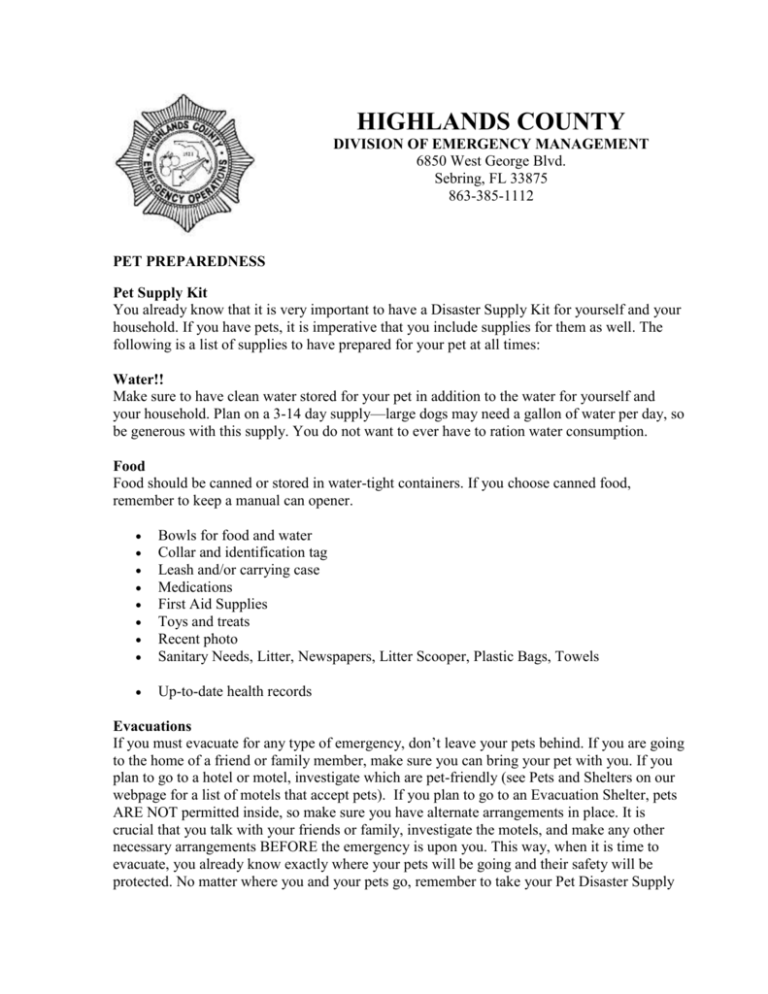
HIGHLANDS COUNTY DIVISION OF EMERGENCY MANAGEMENT 6850 West George Blvd. Sebring, FL 33875 863-385-1112 PET PREPAREDNESS Pet Supply Kit You already know that it is very important to have a Disaster Supply Kit for yourself and your household. If you have pets, it is imperative that you include supplies for them as well. The following is a list of supplies to have prepared for your pet at all times: Water!! Make sure to have clean water stored for your pet in addition to the water for yourself and your household. Plan on a 3-14 day supply—large dogs may need a gallon of water per day, so be generous with this supply. You do not want to ever have to ration water consumption. Food Food should be canned or stored in water-tight containers. If you choose canned food, remember to keep a manual can opener. Bowls for food and water Collar and identification tag Leash and/or carrying case Medications First Aid Supplies Toys and treats Recent photo Sanitary Needs, Litter, Newspapers, Litter Scooper, Plastic Bags, Towels Up-to-date health records Evacuations If you must evacuate for any type of emergency, don’t leave your pets behind. If you are going to the home of a friend or family member, make sure you can bring your pet with you. If you plan to go to a hotel or motel, investigate which are pet-friendly (see Pets and Shelters on our webpage for a list of motels that accept pets). If you plan to go to an Evacuation Shelter, pets ARE NOT permitted inside, so make sure you have alternate arrangements in place. It is crucial that you talk with your friends or family, investigate the motels, and make any other necessary arrangements BEFORE the emergency is upon you. This way, when it is time to evacuate, you already know exactly where your pets will be going and their safety will be protected. No matter where you and your pets go, remember to take your Pet Disaster Supply Kit. The following is information about pets and hurricane evacuation centers is provided by the American Red Cross: Why can't people bring pets to a Red Cross disaster shelter? Shelters are places of refuge for all members of the community, many of whom have allergies related to pets or who are afraid of certain animals. The Red Cross is concerned about the care, health, and comfort of all people in our shelters. Public health, animal control, physical space, hygiene, and other issues all indicate that animals are best kept separated from congregate shelters. The American Red Cross will continue to admit to its disaster or evacuation shelters individuals with disabilities accompanied by their service animals. Pets and other animals, however, cannot be admitted to Red Cross shelters for the reasons cited above. Red Cross cannot operate animal shelters, and animal shelters operated by others cannot be identified with the Red Cross. Disaster Services at national headquarters will continue working with The Humane Society of the United States and with the American Humane Association as they explore options and strategies for animal care before, during, and after disasters. Shelter in place If you do not have to evacuate during an emergency and you feel safe staying in your home, first, follow the general guidelines for sheltering-in-place. If you are going to a safe-room, take your pets and your pet supply kit with you. Remember that emergencies can be stressful situations for animals just as for people. Even the most well-behaved pet may take on unpredictable behavior in these situations. Keep your pet on a leash or in a carrying case throughout the disaster. Try to keep their routines as normal as possible.

